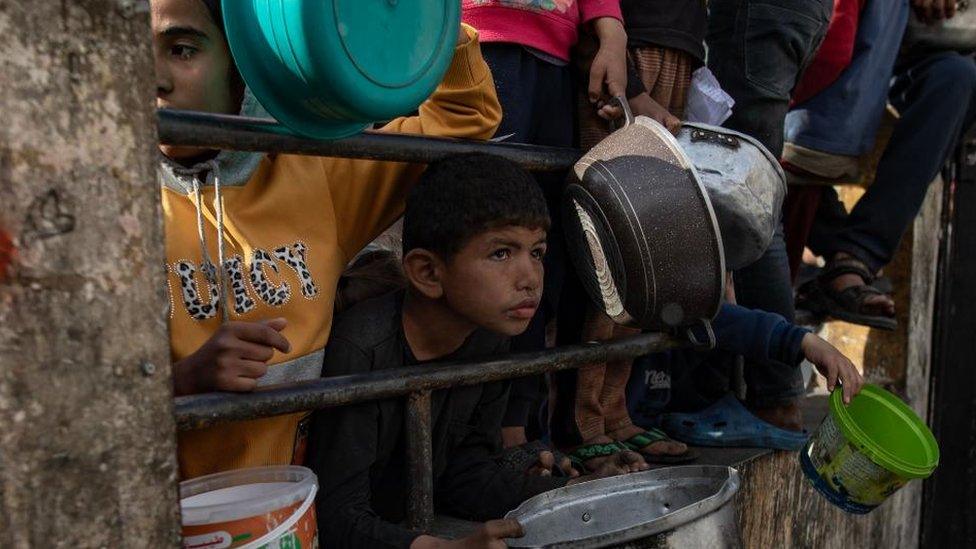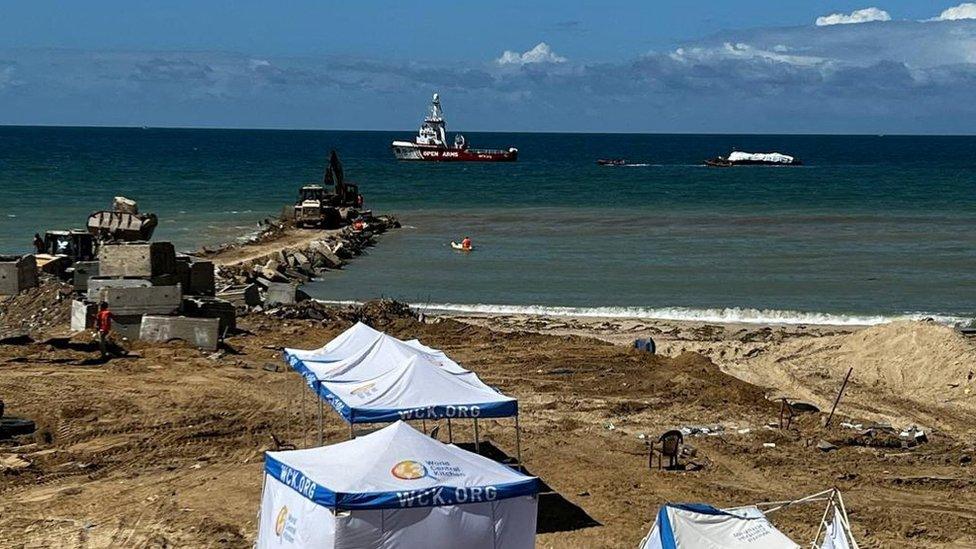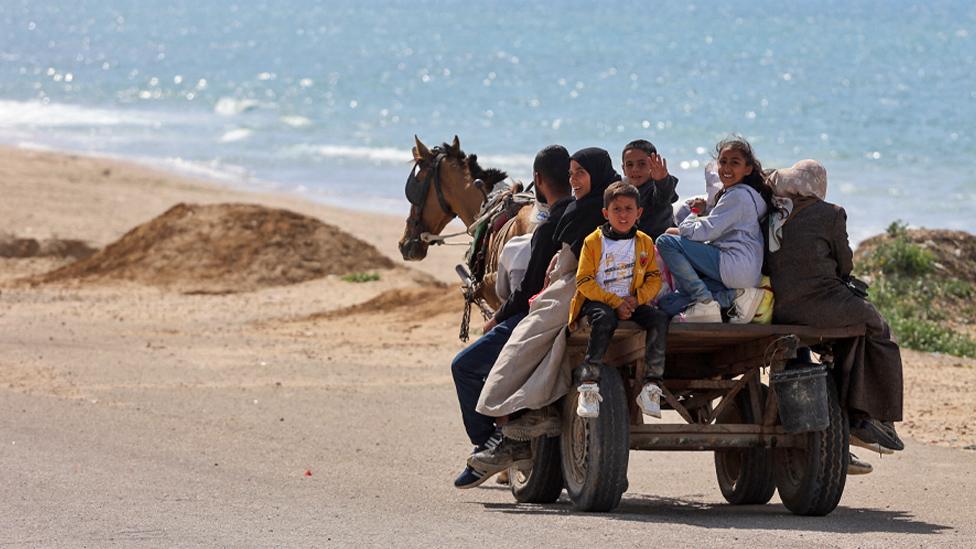Israel-Gaza war: Germany calls for more larger-scale aid
- Published

German Chancellor Olaf Scholz has called for more aid to reach Gaza on the ground, as he criticised Israel's plans for a full-scale offensive in the southern city of Rafah.
Israel has previously defended its plans for an offensive in Rafah, calling it necessary to bring an end to Hamas in the strip.
Mr Scholz's remarks come a day after the first maritime aid package to Gaza.
The shipment contained 200 tonnes of food, including rice, oil and dates.
The mission was carried out by US charity World Central Kitchen (WCK) in co-operation with the United Arab Emirates.
Aid has trickled into Gaza slowly since the start of the war, which began after Hamas gunmen attacked southern Israel on 7 October, killing about 1,200 people and seizing 253 hostages.
Since then, more than 31,400 people have been killed in Gaza, according to the Hamas-run health ministry.
Speaking to reporters ahead of a visit to the Middle East, Mr Scholz described the situation in Gaza as "difficult", adding that it is "necessary for aid to reach Gaza on a larger scale now".
He said he will be bringing up the subject during talks with his counterparts in the region.
Mr Scholz went on to stress that Germany is concerned about military developments in Rafah, which is on the border with Egypt.
More than a million people from other parts of Gaza are sheltering there.
"There is a danger that a full-scale offensive in Rafah will result in many terrible civilian casualties, which must be avoided at all costs," Mr Scholz said.
It comes after Israeli Prime Minister Benjamin Netanyahu approved plans for a military operation in Rafah, adding that the army was preparing for the evacuation of civilians.
Defending its strategy, Israel says Hamas cannot be fully removed in Gaza without targeting Rafah.
Israel's plans have been criticised by the international community, with the UN and US also warning that a full-scale assault in Rafah could be disastrous.
Speaking on Thursday, the Israel Defense Forces (IDF) said it planned to move displaced Palestinians in Gaza to what it called "humanitarian islands" in the middle of the strip. It is not clear what the "islands" will look like, or how they will operate.

A population plagued by deprivation, Gazans are in desperate need of food with the United Nations previously warning that the enclave is on the brink of famine.
Cogat, the Israeli body that coordinates humanitarian aid to Gaza, says that so far this month an average of 126 food trucks have entered each day. It says this is more than the 70 trucks carrying food specifically that entered Gaza before the war. Some 500 trucks in total entered Gaza each day before the war.
Getting aid in by land is most effective. But military operations and the breakdown of social order have severely hampered aid distribution, leading some countries to try alternative routes - by air and sea.
Israel denies impeding the entry of aid to Gaza and accuses aid organisations of failing to distribute it.
Meanwhile, Israel and Hamas could meet in Doha for talks on a potential truce deal as soon as Sunday. Hamas said it had given a "comprehensive vision" to mediators.
But Mr Netanyahu accused the group of making "unrealistic" demands. Nevertheless, he agreed to send Israeli negotiators to Qatar.
In an interview with the BBC on Saturday, Dr Margaret Harris, spokeswoman for the World Health Organization (WHO), said it is "good news" to hear there is movement towards a ceasefire.
She described that measure as "the only answer" to the current situation in Gaza. Dr Harris said her colleagues on the ground have never seen misery like it.
"They have never seen the speed and the horror and the misery the people are living in there, living massively crowded together, starving in places covered in human waste faeces, unable to clean the place because we can't even bring chlorine in".
Related topics
- Published16 March 2024

- Published15 March 2024
